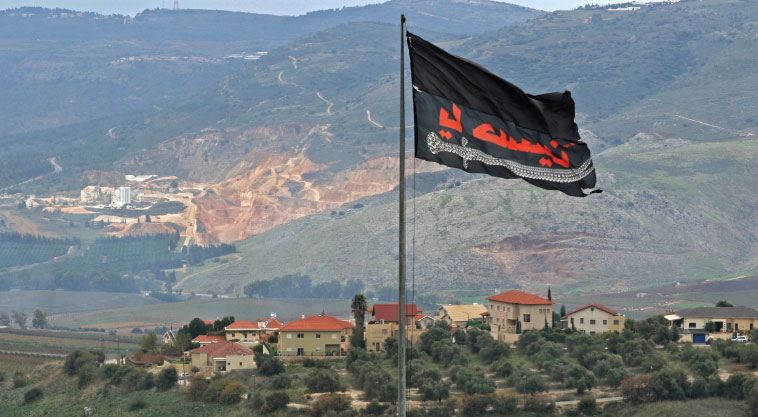Sixty Kilometers Too Close


Photos: Menachem Kalish
As Israel continues to dig along the northern border in search of Hezbollah attack tunnels, Jerusalem is also countering Iranian designs in Syria and Iraq.
Iran’s intervention in Syria allowed it to smuggle weapons to its terror proxy Hezbollah in Lebanon. But those shipments have decreased in recent months, primarily as a result of Russian pressure.
In reaction, Iran has shifted the battlefield of deployment to Iraq, where Tehran is deploying long-range missiles that can reach Israel; and to Lebanon, where it is trying to establish factories to produce precision rockets.
The year 2018 was considered a strategic success for the axis that supports the regime of Syrian dictator Bashar al-Assad. But Iran has also suffered setbacks. Though Assad and allied militias have retaken most of Syrian territory and reestablished rule in those areas, Israel has succeeded in slowing down Iran’s rush to establish military bases in Syria. And now, with the exposure of four border tunnels, Israel has thwarted Iran (and Hezbollah) yet again.
What’s more, the IDF has made it clear that despite the wide media coverage of the precision missile project, Hezbollah so far possesses just a few dozen advanced weapons. In other words, the Iranians have not yet reached “industrial capacity” for retrofitting rockets in Lebanon. Additionally, though Iran continues to smuggle weapons into Beirut by air, these flights carry far fewer military goods than convoys once did through Syria.
That doesn’t mean that Qassem Soleimani, commander of the Quds Force of the Revolutionary Guard, is ready to lay down his arms. Even if Israel exposes and destroys Hezbollah attack tunnels, the terror group is very much part of Tehran’s plans. Should war ever break out with Israel — perhaps as a result of pressure from American sanctions or efforts to thwart Iran’s nuclear and missile programs — it’s hard to imagine that Iran will not demand Hezbollah’s active participation. In light of the billions of dollars that Iran has invested in Lebanon, the day will come when Iran obliges Hezbollah secretary general Hassan Nasrallah to provide significant payback for its investment.
A senior defense official recently informed colleagues in Europe that it will be hard to preserve the quiet in Lebanon for another year.
“We will try to neutralize the tunnels and take them out of the equation, but the precision project remains a problem for us,” he said. “Iran is trying to establish a missile network in Iraq and Syria, in addition to rockets that it has already provided to Hezbollah in Lebanon and to Palestinian groups in Gaza. For us, it is too much. The Iranians need to leave Syria completely. (Originally featured in Mishpacha, Issue 740)
Oops! We could not locate your form.













